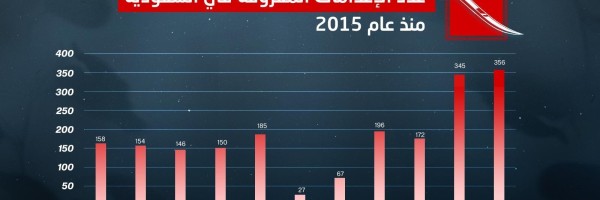ALQST recently obtained and has now confirmed information that preacher Sulaiman al-Dowaish was brutally tortured by high-ranking officials following his disappearance in 2016. The torture took place in an unofficial prison located in the basement of a royal palace in Riyadh and run by members of Crown Prince Mohammed bin Salman’s entourage. The last reported sighting of al-Dowaish was in July 2018, and nothing has been heard of him since then.
Sulaiman al-Dowaish was arrested at a hotel in Mecca on Friday morning, 22 April 2016, after posting tweets (see ALQST’s 2018 Annual Report, page 39) in which he was seen as criticising King Salman for giving his son Mohammed bin Salman (MBS), then Deputy Crown Prince, too many powers without accountability. Since the Minister of Interior refused to have al-Dowaish arrested, MBS had him apprehended by a group of men from the Diwan (royal court) and taken to a facility in Jeddah of the Ministry of Defence, of which MBS was the minister. Al-Dowaish was then flown to Riyadh by night and taken to a royal palace. There he was questioned by a high-ranking official about his tweet and severely beaten until he was drenched in blood and others had to intervene for fear he would be killed. He was tortured on several further occasions.
The prison where al-Dowaish was interrogated and tortured was located in the basement of the palace, and made up of makeshift wooden cells containing torture equipment. It is thought to have been used to detain rival members of the royal family and high-ranking officials, and may have held as many as 150 prisoners. ALQST has been told it was run personally by two officials: Saud al-Qahtani, a close adviser to MBS, and Maher al-Mutrib, a royal bodyguard and member of the hit squad sent to Istanbul in October 2018 to murder journalist Jamal Khashoggi. We were told the two officials also took part in acts of torture themselves. Maher Mutreb was one of 11 individuals sentenced by Saudi Arabia’s Criminal Court for the murder of Khashoggi, in a trial lacking all transparency and accountability. Saud al-Qahtani was not brought to trial, despite being widely accused of involvement in Khashoggi’s killing and indeed placed on several countries’ sanctions lists.
Around two months after Sulaiman al-Dowaish’s arrest, his name was added to the Ministry of Interior’s online database of detainees. However, when his family called a senior official to inquire about him, they were told that this was a mistake, and they should look for him in a hospital, morgue or mental asylum. Early in 2018, his family received a phone call from a US number in which the caller, who sounded like al-Dowaish, claimed he was in Turkey on his way to fight in Syria. When his family contacted the authorities again and challenged this story, they received conflicting information. Whereas a low-ranking Ministry of Interior official said al-Dowaish had been convicted on charges including “inciting public opinion”, this was denied by a higher-ranking official. His family received another call from the United States in September 2018, repeating a similar story. The last reported sighting of al-Dowaish was in a detention cell in a royal palace in July 2018. Nothing has been heard of him or his state of health or whereabouts since then; he remains forcibly disappeared.
The practice of holding detainees at unofficial places of detention, where torture has been commonplace, has emerged as a new trend since Mohammed bin Salman became crown prince in 2017. In November of that year a large number of prominent Saudi business people, government ministers and members of the royal family were arrested and detained in the Ritz-Carlton hotel in Riyadh, where some of the detainees were ill-treated and tortured. In November 2018, reports emerged of the brutal torture of detained women human rights defenders in different prisons, as well as in unofficial places of detention known as “the hotel” and “the officers’ guesthouse”, where they were subjected to interrogation. The women suffered beatings, flogging and electric shocks that left some of them unable to walk or stand properly, with uncontrollably shaking hands and with marks of torture on their bodies.
ALQST calls on the Saudi authorities to immediately reveal the fate of Sulaiman al-Dowaish, as well as others forcibly disappeared, and to immediately and unconditionally release all those arbitrarily arrested for their opinions. ALQST calls for pressure to be brought to bear on the authorities to end these practices, and for them to be held fully accountable.




